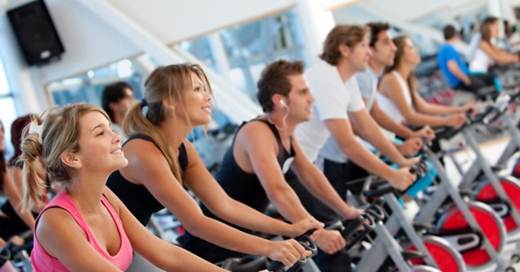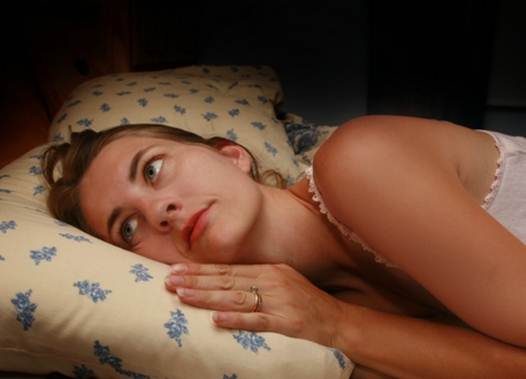Hit the gym in the morning
"Exercise reduces stress, so it's good
for sleep, but it also increases your body's core temperature, making it tough
to drift off," says Robert Oexman, director of the Sleep to Live
Institute. One study presented to the American College of Sports Medicine found
that 7am workouts improved sleep quality more than late-day exercise. If you
can't give up your 7pm spin class, take a steamy shower afterward. It might
sound counterintuitive, but heating your skin and then stepping into the air
makes your core cool down quickly - a cue to your body that it's time to drift
off.

Make your bed
Once you've got your pretty new threads,
don't leave them in a heap when you get up in the morning. Aesthetics aside,
taking a moment to tidy up may help you sleep better at night. In fact, 44
percent of people who make their beds daily report snoozing more soundly than
those who don't, according to the National Sleep Foundation. Researchers
speculate that a messy room can make you feel more stressed and restless but
just look around your own mess and you'll know you don't need a research report
to prove this.
Get up on Sundays
Sleeping in on weekend only seems like a
dreamy idea. Wide variations in your get-out-of-bed time can throw off your
sleep-wake cycle, putting you at risk for insomnia. If you're dying to sneak in
extra rest, keep it to within an hour of your weekday wake-up time.
Nix the nightcap
If you think alcohol can help you fall
asleep, you're only partially right. You may seemingly slip into a peaceful
slumber, but alcohol gets in the way of the deep, quality rest your body needs.
You don't have to swear off all spirits, but limit yourself to one glass per
night and consume it at least three hours before turning in.
Swap warm milk for cherry juice
Milk does have small amounts of tryptophan
the hormone that induces sleep. But if the beverage leaves you cold, opt for an
evening and morning glass of tart cherry juice, which contains the sleep
hormone melatonin. According to a British study, people who drink it regularly
sleep longer (an extra 25 minutes) and more deeply than those who don't.

Follow your nose
The scent of lavender may improve your
sleep quality. Researchers at Wesleyan University found that people who took a
whiff of lavender oil before going to bed spent more time in deep slumber and
awoke feeling more energetic than those who sniffed plain water. Try sprinkling
lavender essential oil on your sheets or invest in a lavender pillow mist.
Seek help from a pro
If all else fails - meaning you have been
battling insomnia for more than a month or you often feel groggy despite
spending seven-plus hours in the sack - a sleep doctor can help you pinpoint
the problem and suggest an appropriate treatment. Depending on what's plaguing
you, you might benefit from cognitive behavioural therapy, herbal remedies,
prescription medication or treatment for a condition like sleep Apnoea. Ask
your doctor for a referral to a sleep doctor.
When counting sheep fails
Try to stay awake
It may sound a little crazy, but it works.
A lot of people have performance anxiety when it comes to falling asleep and
this trick can help. Dim the lights, crawl into bed with a book or magazine, and
tell yourself you will try to stay up for the next half hour. You just might
find yourself dozing off within 10 minutes.

Get out of bed
When slumber will not come, thrashing
around for hours will only stress you out further. You will also begin to associate
your bed with being wide awake, which ca make it harder to drop off in the
future. So get up and do some deep breathing or reading or work (but do not
watch TV – see step 1). Once you begin to feel sleepy, go back to bed; you
should nod off more easily.
Make a to-do list
If your mind is racing with all the tasks
awaiting you tomorrow, jot them down. Do not get too specific (no grocery
lists!); just outline what has to get done. “It’s amazing how quickly you can
dismiss things from your mind once they are on paper,” say experts at the
Better Sleep Council.